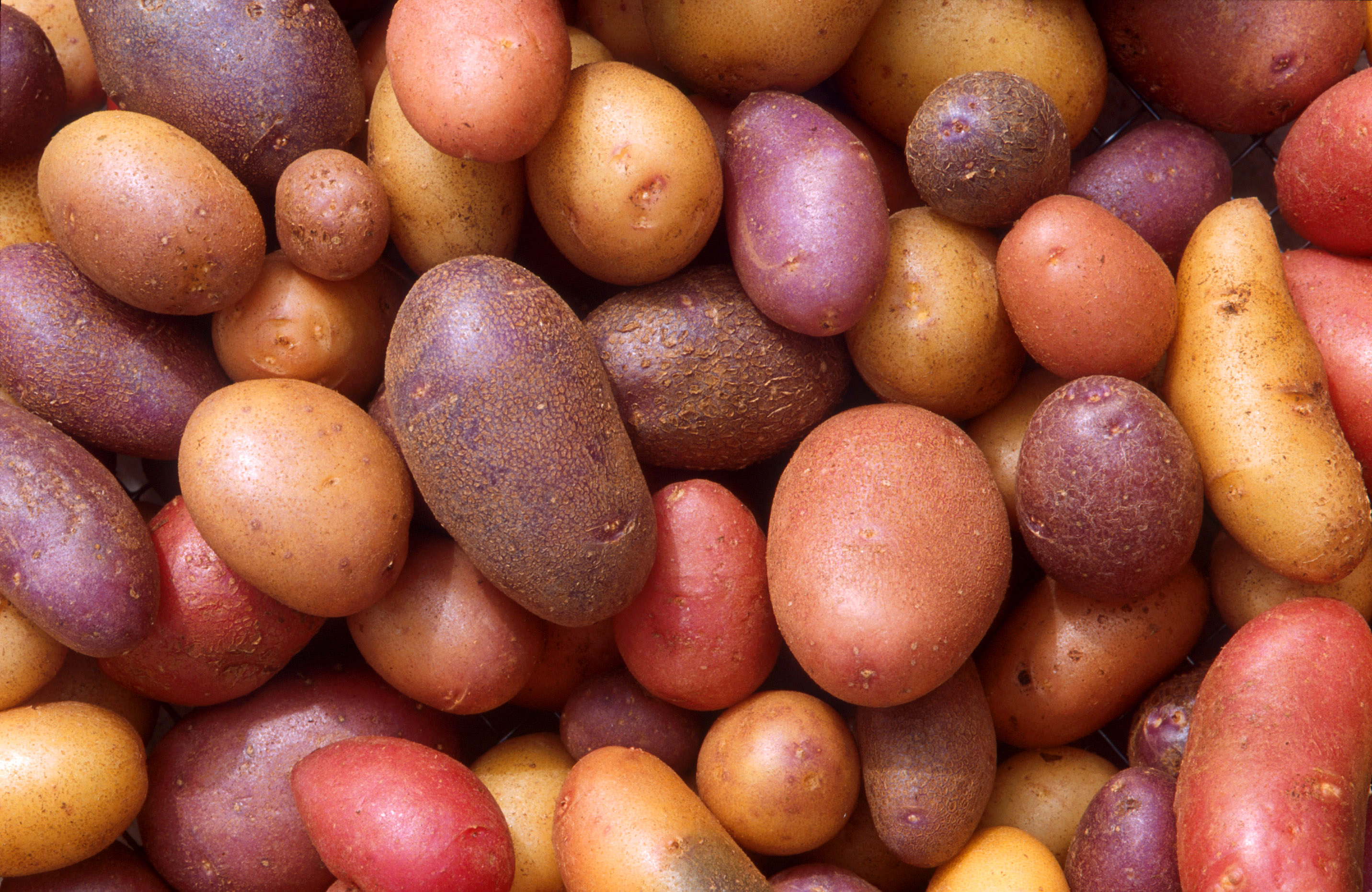Knowing the Types of Potato to Use in Your Cooking
TEXARKANA, Ark. –
All potatoes are the same some might say, but actually there are many varieties of potatoes to use in your cooking. They are one vegetable that most people love to eat and everyone has their favorite way to eat them. Baked, mashed, au gratin, in salads, fried, or just as skins, potatoes can be cooked a hundred ways. Anyone can prepare potatoes; you just have to know which type of potato to buy.
There are three main classifications of potatoes – starchy, waxy and all purpose. Knowing what they are best used for will arm you with the information you need to choose the type potato to use in your cooking.
Starchy potatoes include russets, the classic Idaho, and many sweet potatoes. They are high in starch and low in moisture. Idaho Russet potatoes are russet-skinned with white flesh. They’re what we typically imagine when we think of potatoes. They have a neutral potato flavor, a fluffy, creamy and soft texture, and are best for baking, mashing and making French fries. They’re very absorbent, but don’t make a good potato salad, au gratins, or any dish that requires the potatoes to hold their shape, because they will soften and fall apart.
Waxy potatoes such as red-skinned and fingerling potatoes are great for soups and salads because they hold their shape well during cooking. They don’t do well as mashed potatoes as they tend to get pasty and don’t result in a good texture. Red skin and fingerling potatoes can be found at the Gateway Farmers Market, where you can visit with the farmers who grow them and get cooking tips.
Red Bliss potatoes have bright red skin with creamy white flesh. They’re slightly bitter, and have a firm, moist and waxy texture. They’re best for soups, stews, boiling, roasting, potato salad and casseroles. Don’t try them for mashing as they tend to get pasty and don’t result in a good texture.
Fingerlings are two to three inches long and are thin, finger-shaped with thin, buff-yellow skin and light yellow flesh. They are available in local supermarkets and have a mild, nutty and earthy flavor, and firm texture. They’re great for boiling, baking, roasting and potato salads, and since they are waxy, they are bad for soups.
New potatoes are any type of potato that’s harvested young, before its sugars have fully converted to starch. They’re small and round with thin skin, and depending on the type, they may vary in color. They’re sweet, firm, creamy and very waxy. Use them for boiling, steaming, roasting or in soups, but don’t use them for baking
All-purpose potatoes include Yukon Gold, blue, and purple potatoes. Yukon Gold potatoes have yellowish-white skin with light yellow, almost golden flesh. They are slightly sweet, with a smooth, almost waxy texture and moist flesh. They’re great for boiling, baking and making French fries. They’ll also stand up well to grilling, pan frying and roasting.
In the supermarket I saw beautiful Purple Peruvian potatoes with a deep purple skin. Once cut open, their flesh may match their exterior or be marbled. They’re earthy and slightly nutty, with an almost buttery aftertaste. They have a dry and starchy texture. These all-purpose potatoes are best for boiling, baking, roasting, frying and grilling, although they should work in all dishes and preparations.
Whether you are choosing starchy, waxy or all purpose, choose clean, firm, smooth potatoes that are not green in color and don’t have sprouts. Reject potatoes with large cuts, cracks, bruises, decay, sprouting eyes or shriveling.
Store them in a cool, dark place with good ventilation for up to 1 month. Discard any that are shriveled or sprouted. Don’t store potatoes in the refrigerator; this favors the accumulation of sugar, giving the potato a sweet flavor and dark color when cooked.
By paying more attention to this humble root vegetable, you are loaded with information to choose the best variety for what you need. You can even chat with the farmers at our farmers market about different varieties they have available and get them fresh from the garden.
For more information, contact the Miller County Extension Office, 870-779-3609 or visit us in room 215 at the Miller County Courthouse. We're online at chadley@uada.edu, on Facebook at UAEXMillerCountyFCS/CarlaDueHadley, on Twitter @MillerCountyFCS or on the web at uaex.uada.edu/Miller.
Red Potatoes with Garlic Dill Sauce
8 medium red potatoes with skins on, washed well, and cubed
3 tablespoons margarine, melted
1 tablespoon chopped fresh dill
2 teaspoons fresh minced garlic
1/4 teaspoon salt
Steam potatoes in a steamer basket, for about 10 minutes, or until potatoes are fork tender. In a small bowl, stir together margarine, dill, garlic, and salt. Transfer the potatoes to a serving bowl, and cover with garlic dill sauce. Toss gently until well coated. Serve warm or cold.
By Carla Haley-Hadley
County Extension Agent - FCS
The Cooperative Extension Service
U of A System Division of Agriculture
Media Contact: Carla Haley-Hadley
County Extension Agent - FCS
U of A Division of Agriculture
Cooperative Extension Service
400 Laurel Street, Suite 215 Texarkana AR 71854
(870) 779-3609
chadley@uada.edu
The Arkansas Cooperative Extension Service is an equal opportunity institution. If
you require a reasonable accommodation to participate or need materials in another
format, please contact your County Extension office (or other appropriate office)
as soon as possible. Dial 711 for Arkansas Relay.
Pursuant to 7 CFR § 15.3, the University of Arkansas System Division of Agriculture
offers all its Extension and Research programs and services (including employment)
without regard to race, color, sex, national origin, religion, age, disability, marital
or veteran status, genetic information, sexual preference, pregnancy or any other
legally protected status, and is an equal opportunity institution.
